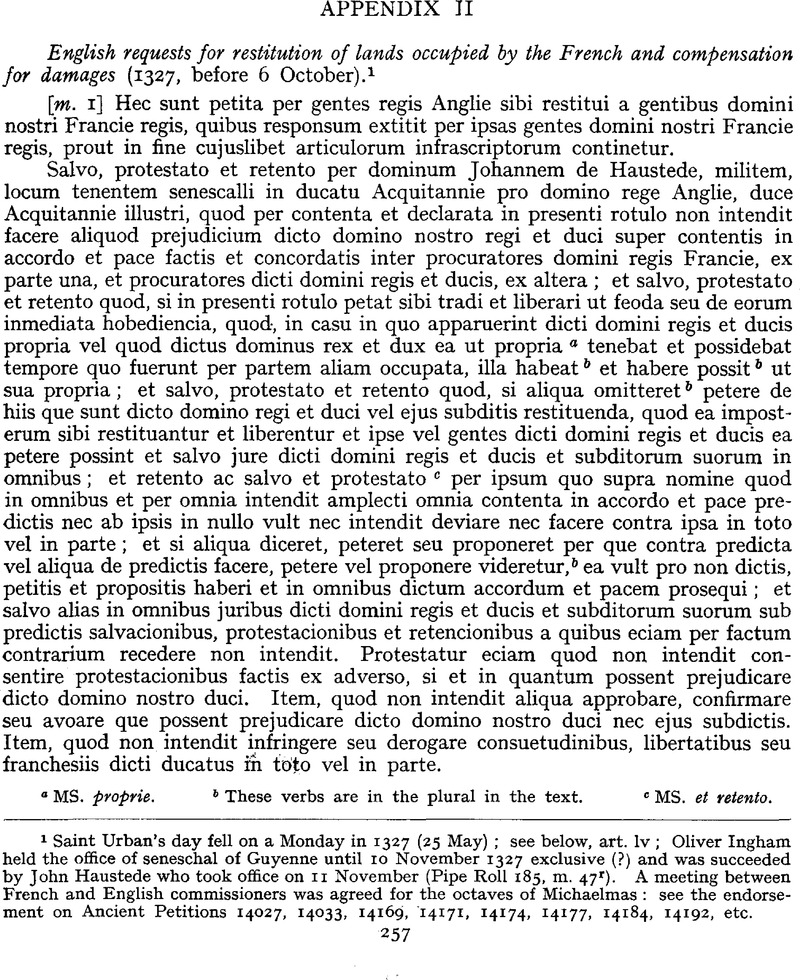No CrossRef data available.
Article contents
Appendix II English requests for restitution of lands occupied by the French and compensation for damages (1327, before 6 October)
Published online by Cambridge University Press: 24 December 2009
Abstract

- Type
- Appendices
- Information
- Copyright
- Copyright © Royal Historical Society 1954
References
page 257 note 1 Saint Urban's day fell on a Monday in 1327 (25 May) ; see below, art. Iv ; Oliver Ingham held the office of seneschal of Guyenne until 10 November 1327 exclusive (?) and was succeeded by John Haustede who took office on 11 November (Pipe Roll 185, m. 47r). A meeting between French and English commissioners was agreed for the octaves of Michaelmas : see the endorsement on Ancient Petitions 14027, 14033, 14169, 14171, 14174, 14177, 14184, 14192, etc.
page 259 note a sic.
page 260 note a Followed by ad valorem dictarum, struck out.
page 260 note b Followed by ad valorem aliarum, struck out.
page 261 note a In the margin there is the drawing of a hand with a pointing ringer.
page 261 note b MS. fralres.
page 261 note c Written above Sanctam, struck out.
page 261 note d MS. saleritatem.
page 262 note a MS. Ayquelnus.
page 262 note b MS. jurisdiccionis.
page 262 note c This word has been corrected.
page 262 note d MS. vicecomitatus.
page 264 note a MS. comitatus.
page 265 note a MS. sont.
page 265 note b Followed by regis, struck out.
page 265 note c MS. petit.
page 265 note d MS. capitaneis.
page 265 note e MS. ducis renciners.
page 265 note f MS. capitaney.
page 265 note g MS. preteriti.
page 266 note 1 For various payments to envoys sent to the marshal of France and others by the bishop of Norwich, Oliver Ingham, seneschal of Gascony, and John Weston, constable of Bordeaux, in connexion with inquiries into losses suffered on both sides, see Exchequer K.R., Accounts Various 309/36 (1 July–1 November 1327). It will be noted that the roll printed above does not only refer to the War of Saint-Sardos proper, which ended with the treaty of May 1325, (prima commocio), but it also covers the second campaign of 1326 (secunda or ultima commocio).


